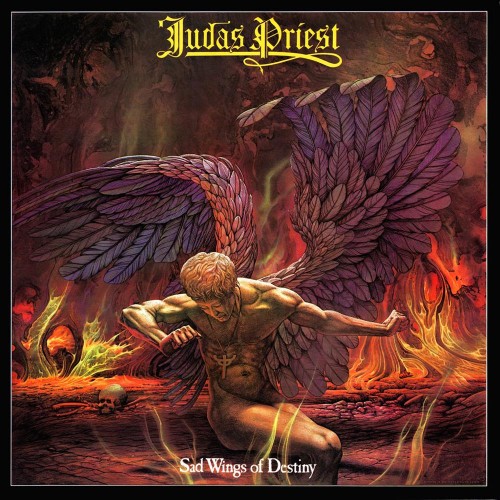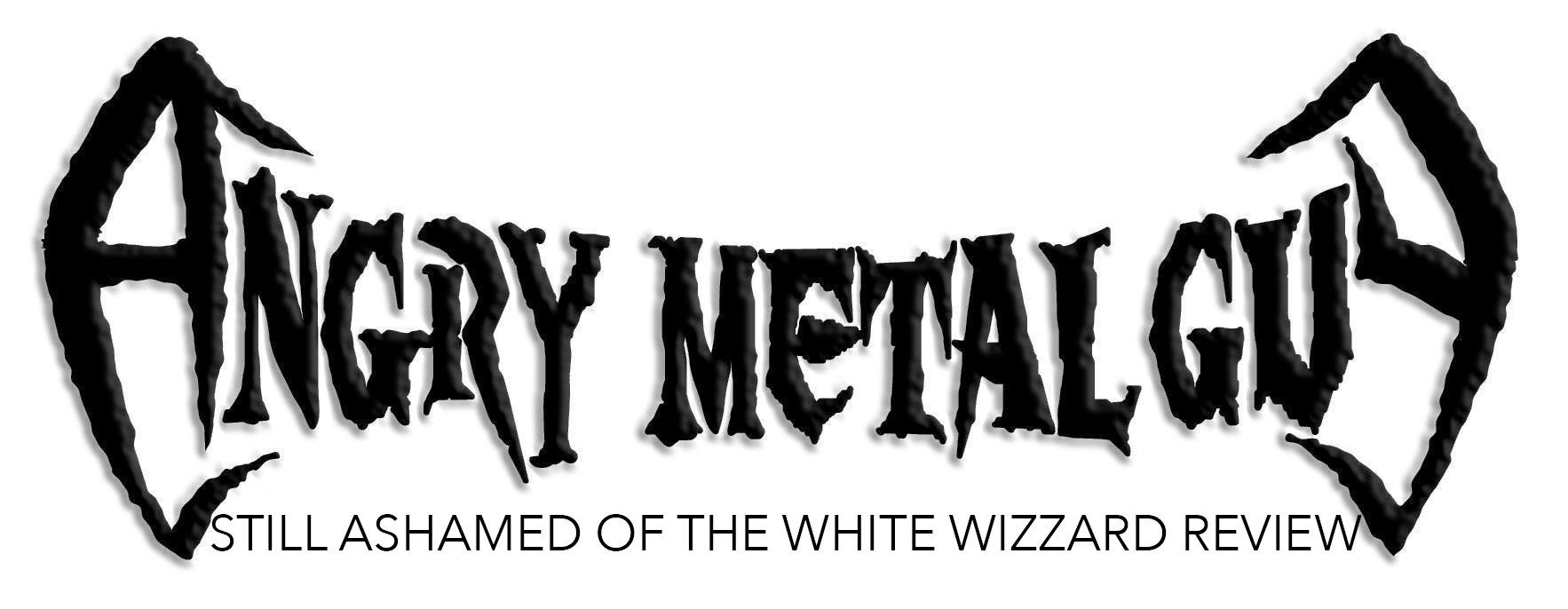 At 40 years young, Judas Priest’s sophomore record Sad Wings Of Destiny is about as Olde as Yer Metal can get. As metal music is now a complex, deliberately inaccessible web of micro-genres, I can see how the average metalhead today might have a hard time relating to a record like Sad Wings. And though it shames me to say it, it took me a while myself.
At 40 years young, Judas Priest’s sophomore record Sad Wings Of Destiny is about as Olde as Yer Metal can get. As metal music is now a complex, deliberately inaccessible web of micro-genres, I can see how the average metalhead today might have a hard time relating to a record like Sad Wings. And though it shames me to say it, it took me a while myself.
What makes this record fascinating is that Judas Priest had not yet fully become…you know, Judas fucking Priest. Signed to the small Gull Records label, the band members were living on meager rations and working part-time menial jobs. They did not yet own leather clothes or motorcycles, and mostly just dressed like hippies. Their lone album at the time, 1974’s Rocka Rolla, had been a disappointment both musically and commercially, putting pressure on the band to do better next time. Priest had some good things going for them, but Metal Gods®, they were not.
Sad Wings opens with Priest’s first truly great song, the 8-minute “Victim Of Changes.” Parts of this song date back to the band’s early days with original singer Al Atkins, while other sections originated with Rob Halford’s previous band Hiroshima. It’s a testament to Priest’s early songwriting skills that “Victim” sounds less like a grab bag of discarded riffs, and more like a multi-sectioned, gradually building composition. Halford uses a variety of vocal styles throughout, but the shrieking and growling at the song’s conclusion is still haunting, four decades later.
Up next is “The Ripper,” which is equally cinematic despite being, at under 3 minutes, one of Priest’s shortest songs. Guitarists Glenn Tipton and K.K. Downing have a lot going on here riff-wise, but once again it is Halford who takes it over the top. His piercing high notes convey the terror of living in Jack the Ripper-era London, and more importantly, it sounds fucking cool.
The following tracks show a Judas Priest that was still experimenting and finding their way. “Dreamer Deceiver” begins with gentle acoustic guitar, while Halford delivers a very ’70s lyric about meeting a mysterious being that offers happiness and freedom. This tranquil scenario is shattered first by a Tipton guitar solo, then by Halford’s impossibly high wailing at the song’s coda. Halford’s eventual singing style and persona did not yet exist — in 1976, he was just a guy who could sing really, really well.

“Dreamer Deceiver” leads into the far more aggressive “Deceiver,” which is the prototype for many of the Priest rockers that followed. “Prelude” is a short but dramatic instrumental that incorporates piano and church organ, betraying Priest’s prog rock roots. Ditto for the piano ballad “Epitaph,” which is not far removed from, say, Queen. As Priest focused their sound over the next few records, these influences would be toned down or abandoned entirely, which is a shame.
The remaining tracks are fairly heavy and straightforward. “Tyrant” finds the Tipton/Downing alliance delivering one of the album’s heaviest riffs, as well as a fucking sweet harmonized guitar lead. The midtempo “Genocide” is hampered by somewhat weak rhythms from drummer Alan Moore (no, not the Watchmen guy). Closer “Island Of Domination” is a little over the top, with Halford squealing at the top of his lungs over proto-metal riffage, but it ends the album on a fairly aggressive note.
While Sad Wings is a satisfying listen on its own merit, it’s also an interesting look into Priest’s evolution. There are so many influences and musical ideas here that would be completely unrecognizable to fans of ’80s-era Priest, as the band quickly distanced themselves from blues and progressive rock. It’s also strange to hear Halford deliver such visual, poetic lyrics, considering he would go on to write “Eat Me Alive” and “Ram It Down” a decade later. On the other hand, the band clearly saw what was working for them — aggressive riffs, a pair of shit-hot lead guitarists, and an insanely talented singer — and made those elements the foundation of the rest of their career.
Sad Wings of Destiny is one of the blueprints for not only Judas Priest, but heavy metal as a whole. If you are into any kind of heavy music, regardless of genre, regardless of your age, you owe it to yourself to listen to this. You may not like it, in the same way that some people don’t enjoy spending time with their grandparents. But in both instances, you cannot deny that these are your ancestors, your roots, and if you listen, you might learn something. Oh, and check out Sin After Sin and Stained Class while you’re at it.

















